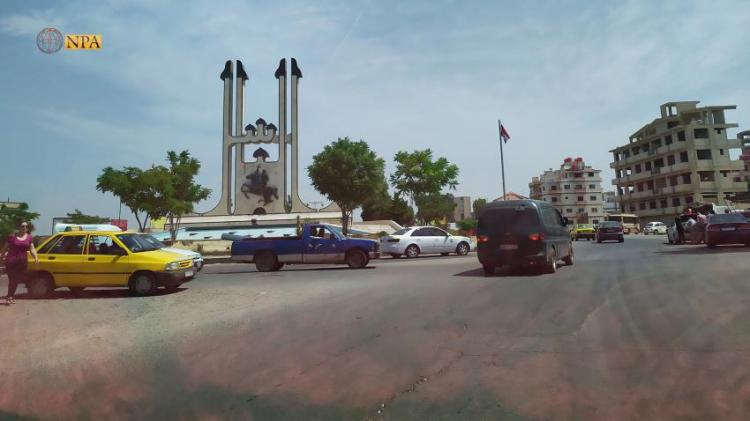As-Suwayda – North-Press Agency
Day after day, the Syrian security forces in As-Suwayda, along with the branch of the Arab Socialist Baath Party, increase the restrictions on civil society teams and organizations in the governorate of As-Suwayda, in an attempt to completely interrupt their activities, and push the activists to stop working or to travel outside of the country.
Sign a pledge
In an interview with North-Press, activists said that the security situation is getting more difficult for the civilian activists in As-Suwayda. “During the last period, a good number of prominent activists were summoned to the security branch of al-Mohafaza Square, some of whom ran civil society team-works; they were forced to sign a pledge to close their offices, and not to carry out any activities without prior approval”, the activists said.
They added: “There were security reviews, put for more than 25 civil activists in one of the security branches, aiming at preventing them from traveling. Most of the activists didn’t respond to the reviews; however, the procedure has not been lifted, in addition to the fact that many of them were suspected of contact with areas of the Autonomous Administration or previously had traveled there or have a future intention to travel.
The trick of review
The activists pointed out that when the security authorities are unable to close an organizations, such as “Juzoor”, they try to restrict the owner of the leased property of the organization, through putting a security review note for him in order to scare him, and interrupt his business, especially those who might own many real estates and have a movement of buying and selling; which means that they always need security approvals, so by putting the security review, they wouldn’t obtain these approvals.
In As-Suwayda, many rumors spread about civil society teams and organizations, all of which are trying to push people away from these organizations, especially where their offices have become gathering places for people, who are interested in the cultural aspect or the political activities.
Fabricated charges
For example, the first charges against the civil society organizations are, that activists including opponents, seek to build popularity that rise against the authorities, or at least steal the popularity of al- Baath Party. The opposition charge is sufficient to put a person at risk of arrest once he leaves the governorate; or at least be given a review note, thus they paralyze their daily lives, and if they are employees, they are likely to be fired.
Other rumors about these organizations and teams are also spread that they are funded from abroad, either from Turkey, Israel or from the Druze community in Palestine, Lebanon, especially the Lebanese politician and a Druze community leader Walid Jumblatt.
Some wonder if these accusations are true, so why they are not being subjected to the legal action, especially some activists are challenging them if they have evidence of such rumors that are systematically disseminated in society.
Framing the organizations
Observers believe that there are people in the authorities – and they seem to be many – still do not recognize the existence of something called the civil society, and insist on calling it the domestic society; they try to make any work outside the organizations of the Baath Party such as al-Shabiba, the Baath Vanguards or the National Union of Syrian Students, a framed work within the associations that were enacted in the middle of the last century.
It is believed that it was directed mainly to the Islamic charities, and with the successive amendments to the law, the Ministry of Social Affairs and the security authorities became fully in control, whether by their action plans or by dissolving and forming their boards of directors, and even this law does not provide security approval to be licensed for the civil work activists.
According to the activists, there is a policy implemented to destroy the civil society project in As-Suwayda and Syria in general, where there is a monopoly on the civil work, and those who want to work in this framework must work under their guardianship; this is an developed version of the old Baath Party organizations, but with the same unilateral mentality.
This makes the options of young activists either to travel outside of the country, or go with the current stream and work within the civil monopoly by the authorities, or to risk their lives and future where it is difficult to predict what the future might bring to them.

